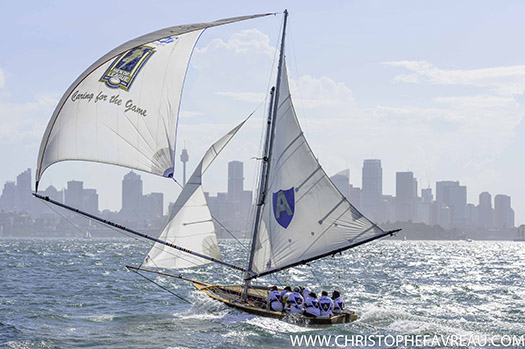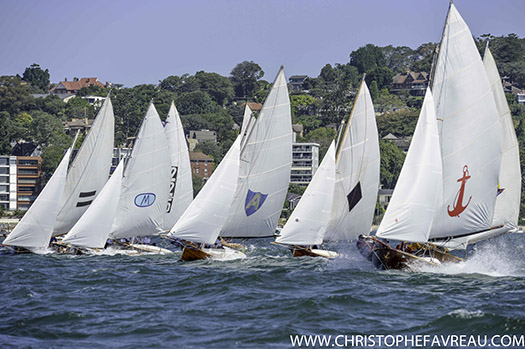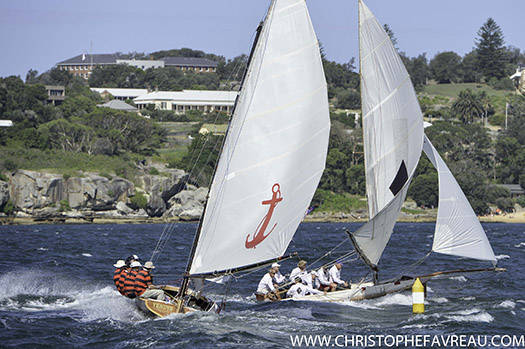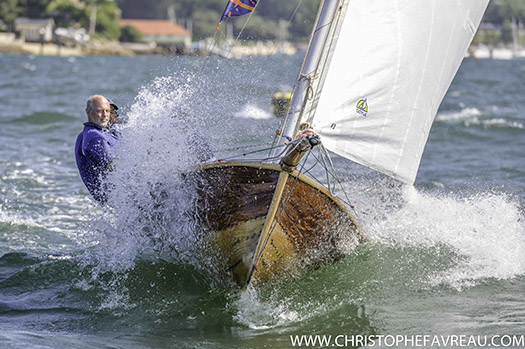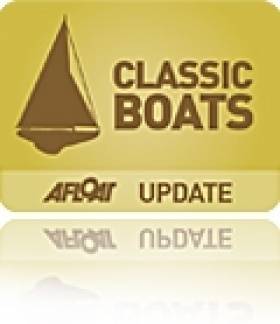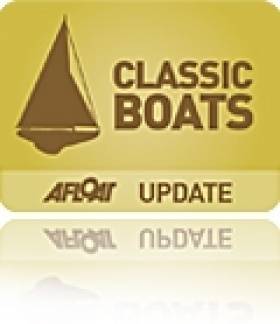Displaying items by tag: Historical 18
Cudmore's Historical 18 Campaign Ends With Broken Tiller
#haroldcudmore – No sooner had we reported on Cork sailing legend Harold Cudmore's commanding start to the Historical 18 Australian championships in Sydney Harbour than it ended.
Cudmore's chances title were dashed when Yendys capsized off Nielsen Park on the run to Shark Island yesterday afternoon.
The highly fancied Yendys, with Cudmore, one of Ireland's top helmsmen, had been leading Aberdare in a big 20–knot plus nor' easter. The two crossed tacks going to windward up the Harbour, wrote Sail World, Cudmore favouring the western shore, while Winning played the breeze to the east and middle of the Harbour.
When the pair met, Yendys had the advantage, leading Aberdare until just before the YA mark at Watsons Bay, when Winning overtook, his crew quickly hoisting the spinnaker, leaving Cudmore to play catch up.
All was well until Nielsen Park when Yendys tiller broke off and over she went in the gusty winds that produced white caps and swell on the Harbour. Ironically, it was Winning's Rippleside that took on rescue duties.
Royal Cork's Harold Cudmore at the Helm in Historical 18's Australian Championship
#historical18 – Ireland features in this week's Historical 18's Australian Championship in Sydney Harbour thanks to Royal Cork Yacht Club yachting legend Harold Cudmore at the helm of Yendys, one of 11 of the fantastic craft photographed here by Christophe Favreau. Carrying a crew of seven or more these early skiff designs date back as far as 1892.
In a replay of last year's final race, defending Historical 18ft Skiffs Australian champion John Winning steered Aberdare to victory on the first day of the 2015 Championship, after engaging in a race-long battle with Cudmore.
Born and raised in Cork, Cudmore became an internationally famous yacht racing skipper and match racer. Cudmore had success in classes from the International 505, where he placed second in the World and fourth in Europe, through classes like the Half-ton and One-Ton classes where he won the Worlds.
The final race for the Australian Historical championships will be held today.
More stunning photos below and on the Christophe Favreau site HERE
